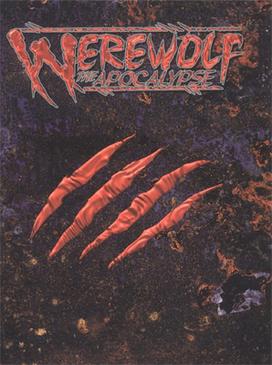There's no good way to approach a review of this without sinking neck-deep into the current socio-political quagmire. There just isn't. I'm going to do my best to talk about it without engaging this, but I will fail. I'm just putting it out there that this review isn't meant to be a discussion of racism and politics in film, but rather, how to handle such issues in a way that doesn't make you look like a pack of morons.
Rambo: Last Blood is a garbage movie. There, I said it. Bring on the hate. I grew up watching the Rambo movies on VHS and (edited) television channels, so if someone wants to accuse me of not loving mindless action movies, come at me, bro. I saw Rambo 4 in the theater and left absolutely thrumming with adrenaline because I thought it was, if not a masterpiece, certainly leagues better than Rambo 3, and felt like they at least put some effort into addressing the complexities of the issues at hand with how outsiders view violent civil conflicts, and the futility of "helping" in regions where such help is marginal at best, and bloodily counter-productive at worst.
Last Blood, on the other hand, appears to have been conceived for the sole purpose of getting to the last 20 minutes of the film, and no one gave any real thought or care as to how the film got there. In order to talk about this, I'm going to have to deal with some extensive plot spoilers, so now is your chance to bail now if you don't want this.
Keep scrolling.
Almost there.
A little more.
Last chance.
Okay then, don't blame me if you're reading this and don't want spoilers.
The long and the short of it is that Rambo is now living on a horse ranch in Arizona with Maria, a woman who is at least approximate to his age, and Gabriela, a young girl who is graduating from high school and going off to college. The first big problem here is that Rambo's relationship to these two women is never actually explained. At the end of Rambo 4, you see Rambo going to a place that you assume is his family farm, but in this movie, you don't really know who is related to whom. Rambo isn't Gabriela's father, or even her grandfather. There's mention of her mother, and a deadbeat dad, whom Rambo stopped apparently at one point from beating up the mother. I'm not even sure of the relationship between Maria and the younger girl - I think she might be an aunt, but I can't say for sure. Seeing as the film spends at least its first 20-25 minutes establishing the family dynamic, the fact that I couldn't figure out the relationships makes this just sloppy writing. This is especially annoying, because the entire reason Rambo goes so batshit later on is that the girl is so emotionally important to him, the "one good thing in his life".
OK, according to Wikipedia, Rambo has no relationship to any of these people. The horse ranch belonged to his dead father, and Maria is the grandmother to Gabriela, and Maria just...runs the household? That at least makes sense, but this relationship isn't really ever laid out clearly, which shouldn't be that hard. You at least know that Gabriela's mother died of cancer when she was little, and after that, her father - who was apparently always an asshole - leaves her with Maria and goes off to Mexico. Fast forward to now, when Maria is 18. A childhood friend of hers - Gizelle, who is referred to as a "bad girl" by Maria - is now living in Mexico, and she has found Gabriela's father, who apparently lives in the same Mexican town. Despite Rambo and Maria repeatedly telling her that her dad Miguel was a violent asshole and she shouldn't have anything to do with him, and Rambo even telling her that she should maybe let her urge to visit her father simmer a little before she makes the decision to visit him, Gabriela almost immediately ducks out and drives down to Mexico to go find Gizelle and her father.
I've already spent two long paragraphs here, so I'll keep this short. Dad is an asshole (surprise) and tells Gabriela to beat it. Gabriela is sad, Gizelle takes her to a club, where she sells (!!!!!!) Gabriela to some sex traffickers, who then drug and kidnap Gabriela. Gizelle then calls back to Maria, tells her she lost Gabriela, and Rambo goes full batshit mode and drives down to Mexico, where he finds Gizelle, realizes she sold out Gabriela, and gets her to point out one of the bad guys. Stuff happens, Rambo fails, and gets beat up by the rest of the bad guys, who decide not to kill Rambo, a guy who just tortured one of their own, and showed up with a pistol and a knife.
Gabriela gets doped up, gets her face slashed, and is put to work as a forced prostitute. Eventually Rambo learns from an "independent journalist" (who just happens to watch him torture one of the bad guys and saves him after his beating) where to find Gabriela, but alas, after he saves her, she dies in his car as they're just...I don't know, driving around in the dark. Yes it makes no sense. He finally drives over the border and brings her body home, then buries her on the farm. Maria just packs up and leaves. Rambo tells her he's going to leave too, but that's a lie. He goes back to Mexico and kills one of the two lead bad guys in a way so that they know it was him. He then comes back home, preps his murder maze, and in the last 20 minutes of the film, kills everyone. The end.
You might be thinking, "Hey, this actually sounds awesome, what's the problem?" but honestly, everything is
just so stupid. It's not that the characters make stupid decisions - although there is some of that - but that every time the story reaches a point where something could be done in an interesting, intelligent, nuanced fashion, the car screeches off the road and goes into the ditch. By the time you get to the climactic battle at the end, it is boorishly obvious that the entire reason the film was made was to show Rambo running around an underground death maze, murdering bad guys with knives, punji sticks, old-timey guns, booby traps, and other assorted ordnance (claymore mines and hand grenades???). There isn't even any strategy or cleverness to any of it - bad guys just die, over and over, running flat-out into death and screaming in blood and pain.
I'm sure many of you are STILL shaking your heads and saying, hey, what's the problem? The problem is,
it is stupid, sloppy work. This movie could have been a really good reflection on the plight of old soldiers who never really left the war behind. On PTSD and re-integration, on wanting to be left alone, only to find violence at one's doorstep again. And while you might think there's some of this, the movie only ever skims the surface, like a stone skipping across the water, but never sinking, just bouncing back out on the other side of the river. What was the point of the movie? What themes does it dig into? What message does it send? You could get the same thrill just firing up your XBox and killing dudes in some FPS game for a couple of hours.
And yes, I am skirting the whole "Mexico" issue. The only thing I'll say about that is, you could have told the exact same kind of story, even with most of the major plot elements relatively intact - and not use Mexico as this sort of Hades-esque underworld that you only venture into at your own risk. It is, again, sloppy, tone-deaf plotting that so obviously doesn't care how it is going to be received, and in fact is probably counting on "snowflakes" hating the movie to stir up buzz and get defensive butts in seats in support of the movie. I don't know, and that's not something I want to engage with, but again - there were many directions the movie-makers could have taken this story and at the same time, left its bones intact. They picked a route through some really, really questionable waters, and at the same time, made a film so sloppy and superficial that there's no real substance to back up the choices they made, except to get us to the finale with extreme prejudice.
Honestly, I am really disappointed.






.jpg/revision/latest?cb=20150402023959)












